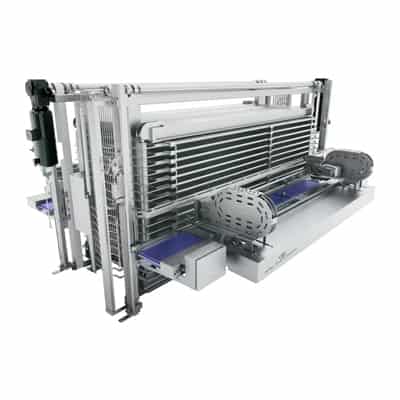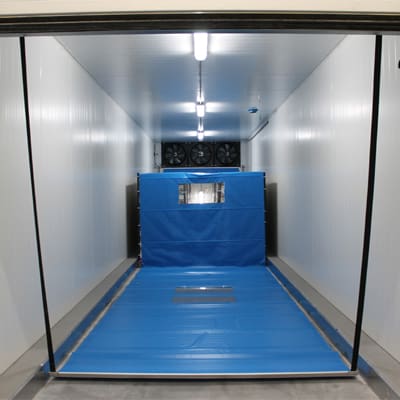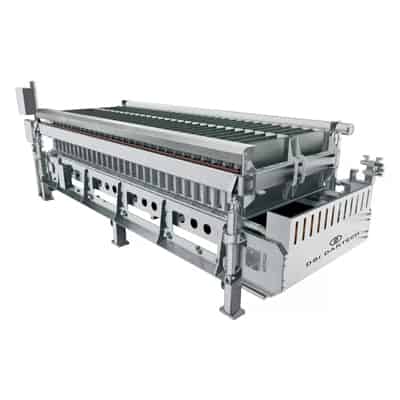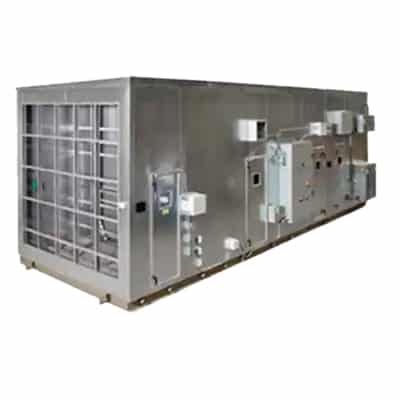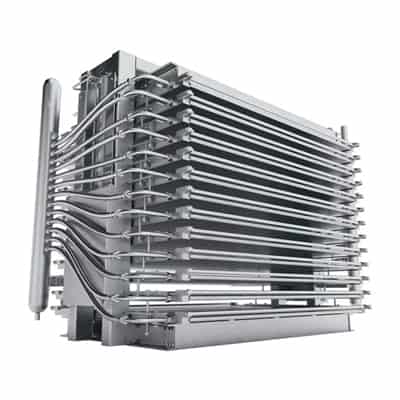A fully automated freezer for food in packaging
The horizontal plate freezers in the HS series are flexible and fully automatic. They are especially ideal for the in-line process freezing of packed products in cartons or trays.
The HS freezers feature a heavy-duty, hot-dip galvanized steel frame or a frame in stainless steel and hydraulic twin rams that ensure a stable and even plate pressure for homogeneous freezing.
Last but not least, the system features a single station opening for easy loading and unloading.
Horizontal plate freezers are ideal for freezing products in trays, cartons, boxes, or frames.
The method entails very fast freezing that sustains the quality of products and ensures food safety. It is also highly sustainable. Tests show that whether you work with fish, meat, poultry, fruit, vegetables, liquids, fluids, pet food, or ready meals, switching to plate freezing will be clearly visible in your bottom lines and in operational savings as well as your environmental footprint, as plate freezing technology is up to 30% more energy efficient than traditional air blast freezers.
Horizontal plate freezing is based on direct and double contact freezing. This results in fast freezing with high product quality and yield. Depending on your needs, our vertical plate freezers can freeze but also cool, heat, and heat exchange your products. We have helped customers handle food in various ways depending on the cooling system. From cooling at 3°C to pasteurization at 100°C.
Each horizontal freezer is specially designed to fit your capacity in terms of space on the production site as well as preferred batch weight or size. We also focus on low power consumption, easy cleaning and maintenance, prevention of dents and marks on product packaging, and the preservation of high food quality at the lowest possible cost.

